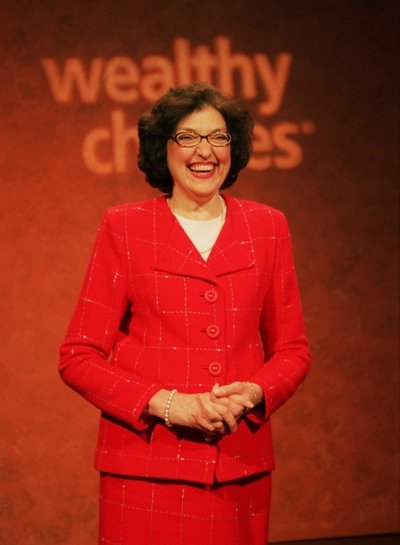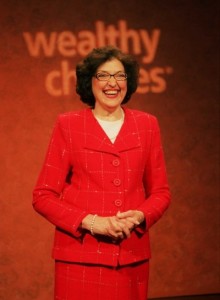
Once client said, “They took my money;” another person, two years away from retirement, was angry that the system of investing had let her down.
For those who thought they were within a few years of retirement the loss of 10% or 40% in their retirement assets was, and is critical. For those who are retired, the loss may seem or be devastating. Emotional reactions are understandable, but not bankable.
What do you do?
You are a snowflake when we look at retirement planning. I don’t mean that you’re melting away, but I do man that you are individual, and the best strategies are tailored to your specific circumstances.
So it is a time to find someone to talk to whom you trust, whom you think is knowledgeable and has your best interest at heart. Maybe have a conversation with several people. An accountant’s view may be very different from a financial planner’s view, which again may be very different from what the most successful person in your family says to you.
What you are looking for in these conversations is:
- How much income can you be sure of? Do you know what money you may have left behind at former employers’ 401(k) or pension?
- What is the absolute minimum you need to run your lifestyle? Only you can say what you are willing to cut.
- Will you have to move to cut expenses? There are many helpful books. One is The 50 Fabulous Places to Retire in America by Arthur Griffith and Mary Griffith. She was a guest on my radio show and I was impressed by their research on not only the utility costs in the places they evaluated, but also the entertainment possibilities for visiting grandkids and friends.
- What is the income you need so you can create a little ease between expenses and income? Most of us like to have some luxuries, something special built into the budget. Credit card debt when you are retired can be frightening.
- How can I best position my assets for both income and growth? Research that you do yourself, or that you pay a financial planner to do, can be significant. You may not know what is available. There are some products that are designed to serve the particular needs of retirees, and those about to retire.
- When do I move my assets to new positions? Again, this needs calculation for understanding the tax and estate tax impact as well as the potential range of income for you.
What I say next is in the category of basic principles about money.
- Good quality investments may show up as paper losses on your financial statements, but historically, good quality investments have come back.* Every investment – no. Good quality – yes. We can debate the definition.
- When you’re retired, you need both income from assets and some growth of assets.
- Create a cooperative of friends in a situation similar to yours. What do you need? Can you bundle your purchasing power to get better deals? Can you brainstorm for creative solutions?
- If you are still working, continue to contribute to retirement. Look for investments that have dividends.
Do let me know what your own solutions are for facing retirement. Creative strategies can turn what seems to be a bleak situation into one that feels comfortable and hopeful.
*Past performance is no guarantee of future results.
Web: WealthyChoices.com
Penelope S. Tzougros, PhD, ChFC, CLU is registered in all 50 states with, and securities offered through LPL Financial.
Member FINRA/SIPC. Philippe Matthews is not affiliated with or endorsed by LPL Financial.
Once client said, “They took my money;” another person, two years away from retirement, was angry that the system of investing had let her down.
For those who thought they were within a few years of retirement the loss of 10% or 40% in their retirement assets was, and is critical. For those who are retired, the loss may seem or be devastating. Emotional reactions are understandable, but not bankable.
What do you do?
You are a snowflake when we look at retirement planning. I don’t mean that you’re melting away, but I do man that you are individual, and the best strategies are tailored to your specific circumstances.
So it is a time to find someone to talk to whom you trust, whom you think is knowledgeable and has your best interest at heart. Maybe have a conversation with several people. An accountant’s view may be very different from a financial planner’s view, which again may be very different from what the most successful person in your family says to you.
What you are looking for in these conversations is:
-
How much income can you be sure of? Do you know what money you may have left behind at former employers’ 401(k) or pension?
-
What is the absolute minimum you need to run your lifestyle? Only you can say what you are willing to cut.
-
Will you have to move to cut expenses? There are many helpful books. One is The 50 Fabulous Places to Retire in America by Arthur Griffith and Mary Griffith. She was a guest on my radio show and I was impressed by their research on not only the utility costs in the places they evaluated, but also the entertainment possibilities for visiting grandkids and friends.
-
What is the income you need so you can create a little ease between expenses and income? Most of us like to have some luxuries, something special built into the budget. Credit card debt when you are retired can be frightening.
-
How can I best position my assets for both income and growth? Research that you do yourself, or that you pay a financial planner to do, can be significant. You may not know what is available. There are some products that are designed to serve the particular needs of retirees, and those about to retire.
-
When do I move my assets to new positions? Again, this needs calculation for understanding the tax and estate tax impact as well as the potential range of income for you.
What I say next is in the category of basic principles about money.
-
Good quality investments may show up as paper losses on your financial statements, but historically, good quality investments have come back.* Every investment – no. Good quality – yes. We can debate the definition.
-
When you’re retired, you need both income from assets and some growth of assets.
-
Create a cooperative of friends in a situation similar to yours. What do you need? Can you bundle your purchasing power to get better deals? Can you brainstorm for creative solutions?
-
If you are still working, continue to contribute to retirement. Look for investments that have dividends.
Do let me know what your own solutions are for facing retirement. Creative strategies can turn what seems to be a bleak situation into one that feels comfortable and hopeful.
*Past performance is no guarantee of future results.
Once client said, “They took my money;” another person, two years away from retirement, was angry that the system of investing had let her down.
For those who thought they were within a few years of retirement the loss of 10% or 40% in their retirement assets was, and is critical. For those who are retired, the loss may seem or be devastating. Emotional reactions are understandable, but not bankable.
What do you do?
You are a snowflake when we look at retirement planning. I don’t mean that you’re melting away, but I do man that you are individual, and the best strategies are tailored to your specific circumstances.
So it is a time to find someone to talk to whom you trust, whom you think is knowledgeable and has your best interest at heart. Maybe have a conversation with several people. An accountant’s view may be very different from a financial planner’s view, which again may be very different from what the most successful person in your family says to you.
What you are looking for in these conversations is:
- How much income can you be sure of? Do you know what money you may have left behind at former employers’ 401(k) or pension?
- What is the absolute minimum you need to run your lifestyle? Only you can say what you are willing to cut.
- Will you have to move to cut expenses? There are many helpful books. One is The 50 Fabulous Places to Retire in America by Arthur Griffith and Mary Griffith. She was a guest on my radio show and I was impressed by their research on not only the utility costs in the places they evaluated, but also the entertainment possibilities for visiting grandkids and friends.
- What is the income you need so you can create a little ease between expenses and income? Most of us like to have some luxuries, something special built into the budget. Credit card debt when you are retired can be frightening.
- How can I best position my assets for both income and growth? Research that you do yourself, or that you pay a financial planner to do, can be significant. You may not know what is available. There are some products that are designed to serve the particular needs of retirees, and those about to retire.
- When do I move my assets to new positions? Again, this needs calculation for understanding the tax and estate tax impact as well as the potential range of income for you.
What I say next is in the category of basic principles about money.
- Good quality investments may show up as paper losses on your financial statements, but historically, good quality investments have come back.* Every investment – no. Good quality – yes. We can debate the definition.
- When you’re retired, you need both income from assets and some growth of assets.
- Create a cooperative of friends in a situation similar to yours. What do you need? Can you bundle your purchasing power to get better deals? Can you brainstorm for creative solutions?
- If you are still working, continue to contribute to retirement. Look for investments that have dividends.
Do let me know what your own solutions are for facing retirement. Creative strategies can turn what seems to be a bleak situation into one that feels comfortable and hopeful.
*Past performance is no guarantee of future results.

 Philippe Matthews Show Guru Advice, Author Reviews, Tech Reviews, Entertainment News
Philippe Matthews Show Guru Advice, Author Reviews, Tech Reviews, Entertainment News







